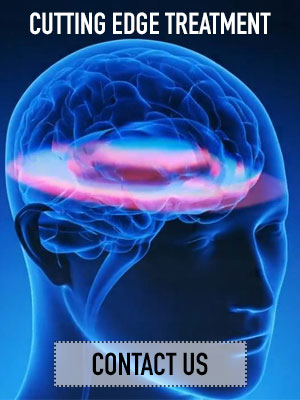
Opioid Addiction Treatment,
independence and withdrawal

We’re facing an opioid addiction crisis with daily overdose fatalities. At our luxury rehabilitation center, our focus is on neuroscience-based opioid rehabilitation, employing evidence-based recovery strategies. Our approach addresses addiction as a brain disease, using advanced treatments to restore health and cognitive function. With a steadfast commitment to education and healing, we strive for meaningful, enduring recovery from opioid misuse.
According to the National Institute on Drug Abuse (NIDA), this is a serious crisis that impacts those dependent on opioids, as well as the general public health.
NIDA cites some alarming statistics about opioids:
- An estimated 21 to 29 percent of legal opioid pain prescriptions are misused
- Approximately 8 to 12 percent of users will advance to an opioid use disorder
- Roughly 5 percent of those will move on to using heroin
- Nearly 80 percent of heroin users first started using opioids
Table of Contents
Understanding Opioids
Opioids are narcotics derived from the poppy plant or synthesized in labs, used primarily in pain management, especially after surgeries or for chronic conditions like traumatic brain injuries (TBI) common in athletes. There are natural opiates like codeine and morphine, semi-synthetic opiates such as oxycodone and hydrocodone, and fully synthetic options like fentanyl, which are utilized in various aspects of sports medicine.
Our focus at Pure Recovery is on safe opioid use and effective opioid addiction recovery for professionals and athletes, ensuring they receive the best care while minimizing risks.
How Opioids Work
Opioids are intricately linked to the human body’s natural systems, including opioid receptors in the brain that regulate everything from immune functions to emotional responses. For athletes or persons that are prescribed an opioid, these receptors play a critical role in pain management after injuries or surgeries. Opioids activate these receptors, producing a dopamine response that exceeds normal pleasure signals, similar to other rewarding activities vital for survival. However, this excess can lead to dependency, underscoring the importance of monitored use and addiction prevention strategies.
Why Opioids Are So Dangerous
Opioids, while effective for pain management, pose significant risks due to their impact on the brain and body functions, including pleasure regulation and automatic processes like breathing. The use of opioids can be particularly hazardous as higher doses can critically slow down breathing and heart rate while exercising, leading to potentially fatal overdoses. It’s crucial to understand these risks and adopt safe opioid use practices to prevent serious health issues.
Identifying Opioid Dependency
Recognizing opioid addiction starts with understanding the dependence that can develop from their use. Although not every athlete who uses opioids will become addicted, the potential for abuse is significant—prompting DEA to classify many as Schedule II drugs. It’s crucial to recognize the early warning signs of opioid misuse and seek professional help promptly to prevent the escalation of dependency. Early intervention can be a pivotal step in the path to recovery.
Call Us: (833) 441-0754 | Email Us
Recognizing Opioid Dependence
Opioid dependence manifests through several physical and psychological symptoms critical to recognize. Physical signs include slow breathing, poor coordination, and changes in weight—effects of opioids’ impact on muscle control and respiratory functions. Psychological changes might include mood swings, irritability, and confusion, which could severely impact work and personal relationships. Understanding these signs is crucial for early intervention and managing opioid symptoms effectively. Remember, addiction requires support and treatment, much like any other medical condition.
Additional Physical symptoms can include:
- Decreased sex drive
- Constipation
- Unusually small pupils
- Flushed skin
- Weight changes (either weight loss or weight gain)
Opioid Withdrawal Management
Opioid withdrawal symptoms can vary, making the detox process particularly challenging for those who have high physical demands. Common symptoms include muscle pain, restlessness, and anxiety, which are crucial to manage with a team of experienced healthcare professionals.
At our facility, we ensure that the detox is safe, keeping patients comfortable and supported through specialized programs tailored to help them stay on track throughout the recovery process.
Here are some of the most common opioid withdrawal symptoms:
- Muscle Pain
- Diarrhea, Vomiting, or Nausea
- Restlessness or Sweating
- General Discontent or Anxiety
- Dilated Pupils and Watery eyes
Opioid Addiction Treatment
At Pure Recovery California, we specialize in opioid addiction treatment. Our program combines state-of-the-art, evidence-based therapies with an experienced team specializing in addiction, neurology, and sports psychology. Starting with a carefully monitored opioid detox, we focus on ensuring safety and comfort. Following detox, patients enter our residential treatment program, which can last from 30 to 90 days, personalized to each person’s needs. Our therapies include Cognitive Behavior Therapy, Behavior Modification, and Biofeedback, all designed to support recovery and enhance brain health.
List of evidence-based treatment therapies specifically proven to be successful for treating opioid addiction including:
- Behavior Modification
- Cognitive Behavior Therapy
- Relapse Prevention
- Biofeedback Cognitive Programs
In addition, our comprehensive program is specifically designed to support those with traumatic brain injury to improve overall brain health that is integrated with emotional support.
Reach out to us toll-free at (833) 441-0754 to explore our specialized Opioid Addiction Treatment Program located throughout the United States. Our expert team is ready to support your recovery journey with tailored solutions.


